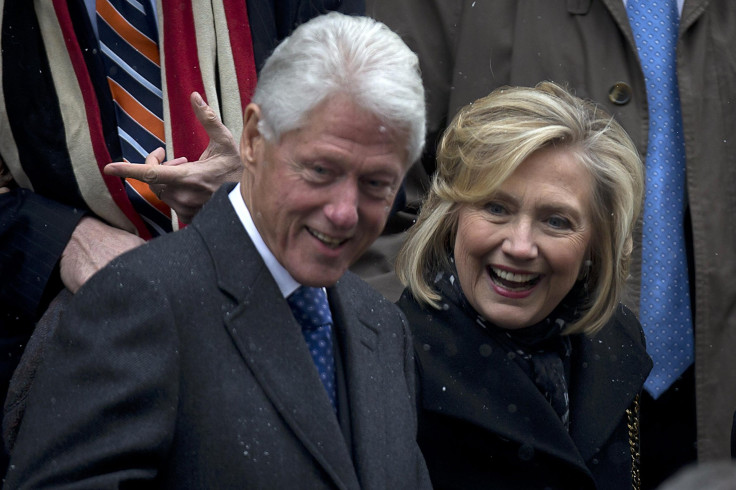Hillary Clinton Tweets To Support Vaccination

Hillary Clinton has taken the virtual route to wade into the fray over vaccines, tweeting in part, "#vaccineswork. Let’s all protect our kids." Although scienctific evidence indicates that vaccines are effective for the vast majority of people, vaccinating has come under political fire recently. Here's how Clinton weighed in on Monday:
The science is clear: The earth is round, the sky is blue, and #vaccineswork. Let's protect all our kids. #GrandmothersKnowBest
— Hillary Clinton (@HillaryClinton) February 3, 2015The statement from the likely 2016 Democratic presidential candidate contrasted starkly with views espoused by some potential Republican presidential hopefuls, including New Jersey Gov. Chris Christie and Kentucky senator Rand Paul. Christie on Monday stated that “parents need to have some measure of choice in things,” like vaccines. His team then scrambled to revise and clarify the statement, with his spokesman Kevin Roberts insisting that “the Governor believes vaccines are an important public health protection.” Paul, meanwhile, said he had heard of children “who wound up with profound mental disorders after vaccines.”
On Monday President Obama urged parents to vaccinate their children, saying in an interview with NBC, “A major success of our civilization has been the ability to prevent diseases that in the past have devastated folks.” He added, “The science is…pretty indisputable.”
The debate over vaccinating is not the first time a medical and scientific issue has been caught up in the realm of politics. Abortion, specifically, and a woman's reproductive rights and control over her body more generally have divided politicians and the public for decades. The question of choice and government control has been pervasive as well in debates related to obesity and the consumption of sugar, as well as smoking and tobacco use.
Anti-vaccination sentiment dates back centuries, but the current "anti-vaxxer movement," as it’s frequently called, can be traced to a widely discredited 1998 study that linked the Measles, Mumps and Rubella (MMR) vaccine to autism. As the Centers for Disease Control points out on its website, a scientific review by the Institute of Medicine rejected any causal relationship between the controversial vaccines and autism. Still, belief is growing among Americans that the risks of vaccines outweigh the benefits, even though mass immunization is considered one of the greatest public health achievements of the 20th century, responsible for the reduction or elimination of several major communicable diseases, including smallpox and polio.
© Copyright IBTimes 2025. All rights reserved.






















